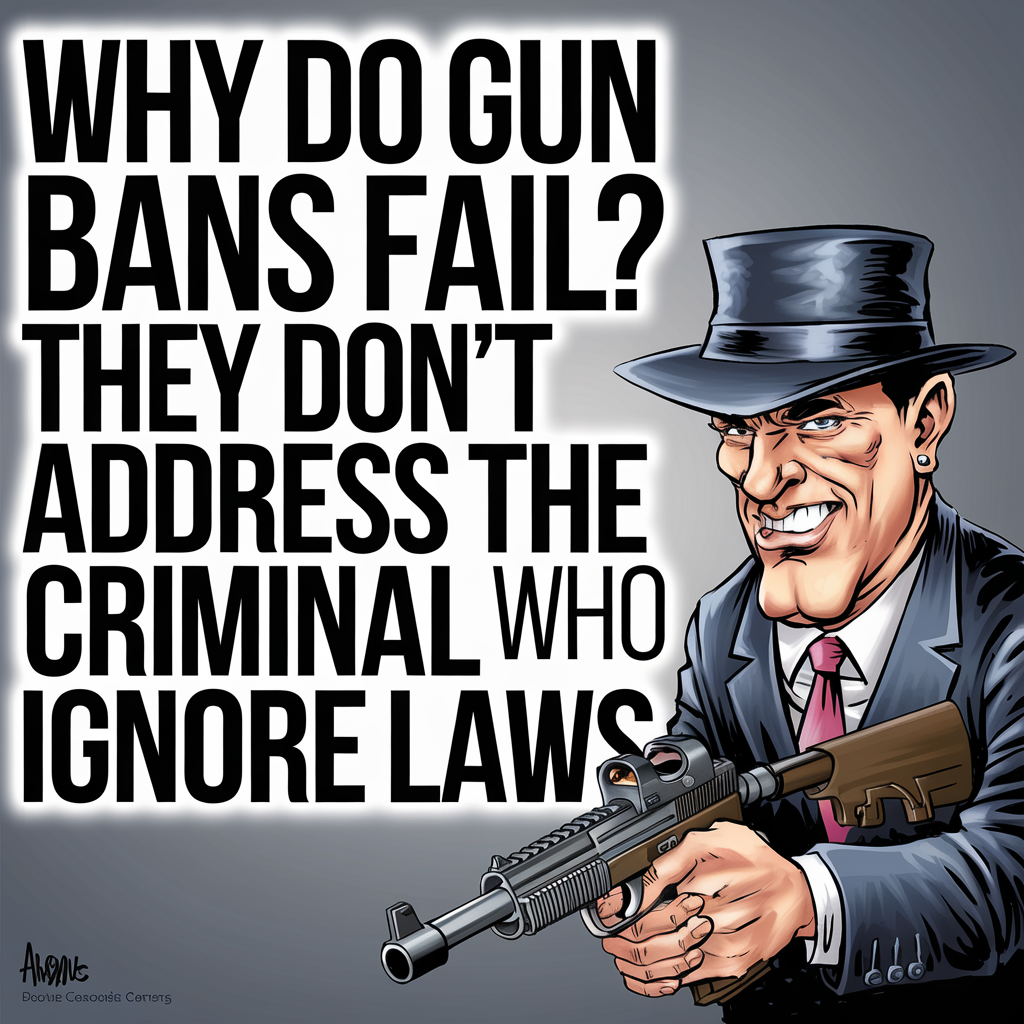
In the ongoing debate surrounding gun control, proponents of stricter regulations often propose gun bans and tighter gun laws as solutions to reduce gun violence. However, this article critically examines the arguments against the effectiveness of such measures. By exploring the complexities and challenges associated with banning guns and implementing stricter laws, we aim to shed light on why these approaches may not yield the desired outcomes.

Preserving Second Amendment Rights: One key argument against gun bans and stricter gun laws is the preservation of Second Amendment rights. Critics contend that these measures infringe upon the rights of law-abiding citizens to bear arms, which is a fundamental aspect of individual freedom enshrined in the U.S. Constitution. They argue that punishing responsible gun owners through bans and excessive regulations may not effectively address the root causes of gun violence.
Criminal Access to Firearms: Opponents of gun bans and stricter gun laws highlight the issue of criminal access to firearms. They argue that individuals intent on committing crimes will find alternative means to acquire guns, regardless of legal restrictions. Therefore, focusing solely on restricting access for law-abiding citizens may not effectively address the issue of gun violence, as criminals often obtain firearms through illicit means.
Effectiveness of Enforcement: Critics of stricter gun laws question the effectiveness of enforcement. They argue that enforcing bans or imposing more stringent regulations on law-abiding citizens may divert limited law enforcement resources from targeting actual criminals. Additionally, challenges related to identifying and tracking illegal firearms present hurdles for effective enforcement, potentially undermining the intended impact of stricter laws.
Unintended Consequences: Another concern raised by opponents of gun bans and stricter laws is the potential for unintended consequences. They argue that limiting access to firearms for self-defense purposes may leave law-abiding citizens vulnerable to criminals who obtain firearms illegally. Furthermore, restrictions on law-abiding citizens’ ability to defend themselves may inadvertently empower criminals, potentially leading to increased crime rates.
Focus on Mental Health and Root Causes: Critics of gun bans and stricter gun laws advocate for a shift in focus towards mental health initiatives and addressing the root causes of violence. They argue that addressing mental health issues, improving access to mental healthcare, and addressing societal factors that contribute to violence can have a more meaningful impact on reducing gun violence than imposing restrictions on law-abiding citizens.
Regional Disparities and Underground Markets: Opponents of gun bans and stricter laws highlight the challenges posed by regional disparities and underground markets. They argue that implementing bans or stricter regulations in certain jurisdictions may result in firearm trafficking from areas with more lenient laws. This can create a thriving underground market, making it difficult to effectively control the flow of firearms.
While proponents of gun bans and stricter gun laws argue that these measures are essential for reducing gun violence, critics raise valid concerns about their effectiveness. Preservation of Second Amendment rights, criminal access to firearms, enforcement challenges, unintended consequences, the focus on mental health, regional disparities, and underground markets are all factors that contribute to the skepticism surrounding these approaches. By considering these complexities, we can engage in a more informed and nuanced discussion about addressing gun violence while respecting individual rights and ensuring public safety
As an Amazon Associate we earn from qualifying purchases through some links in our articles.



